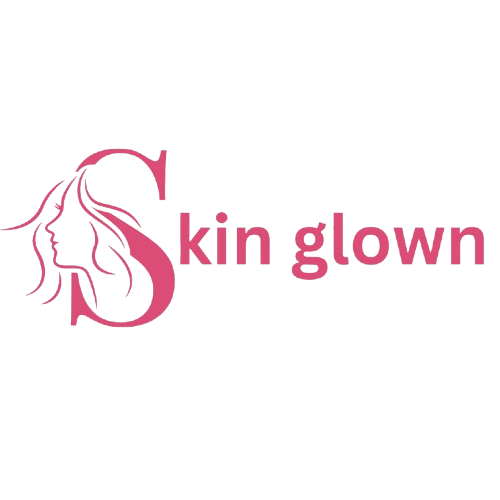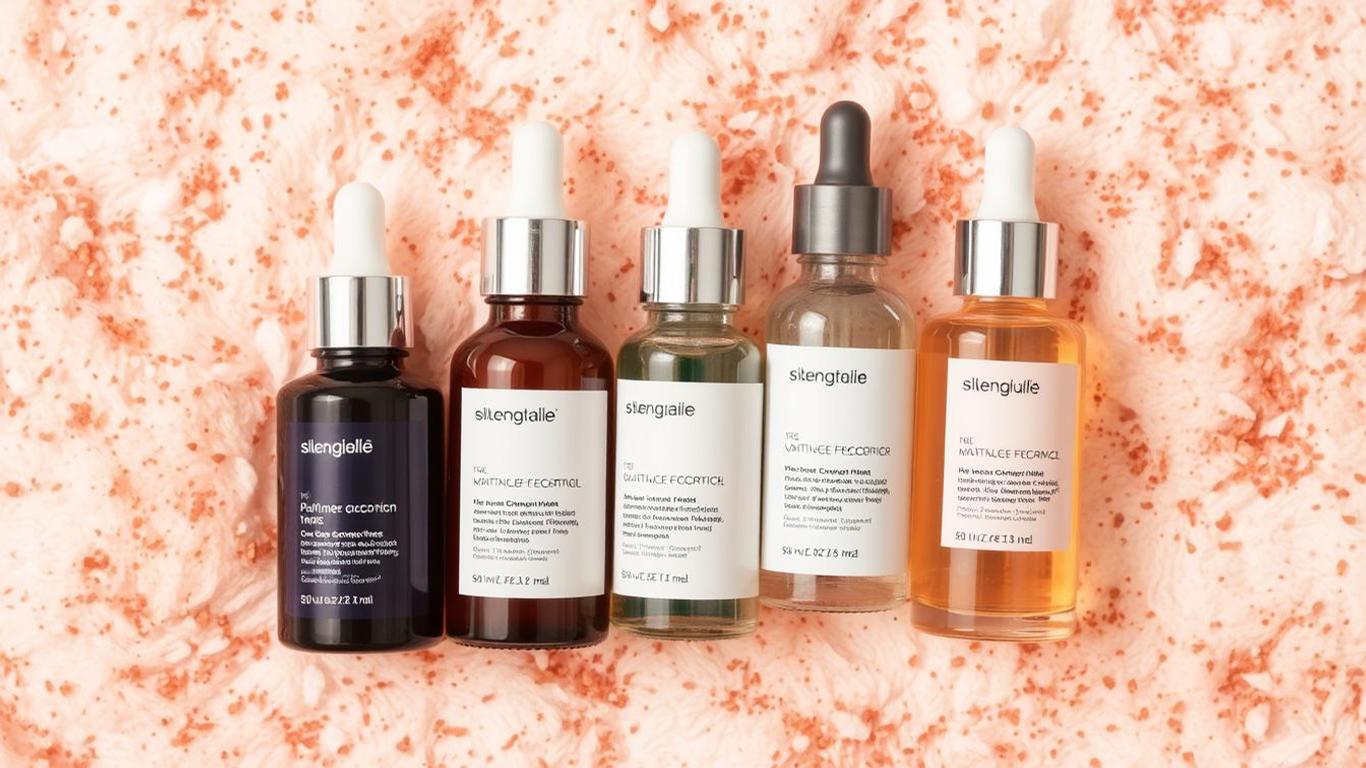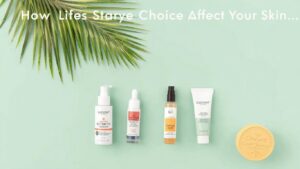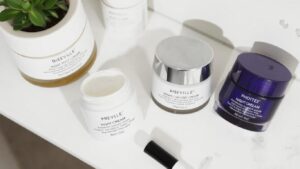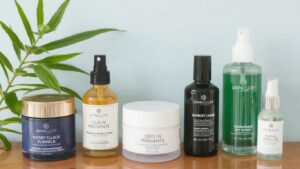The Ultimate Guide to Growth Factors in Skincare: What They Are and How They Can Transform Your Skin Growth factors are proteins naturally produced by the skin that improve skin electricity, skin firmness, and overall health. In terms of topical skincare products, like a growth factor serum, growth factors can refer to polypeptides that support collagen production, wound-healing, and skin-cell regeneration.
Aging Skincare
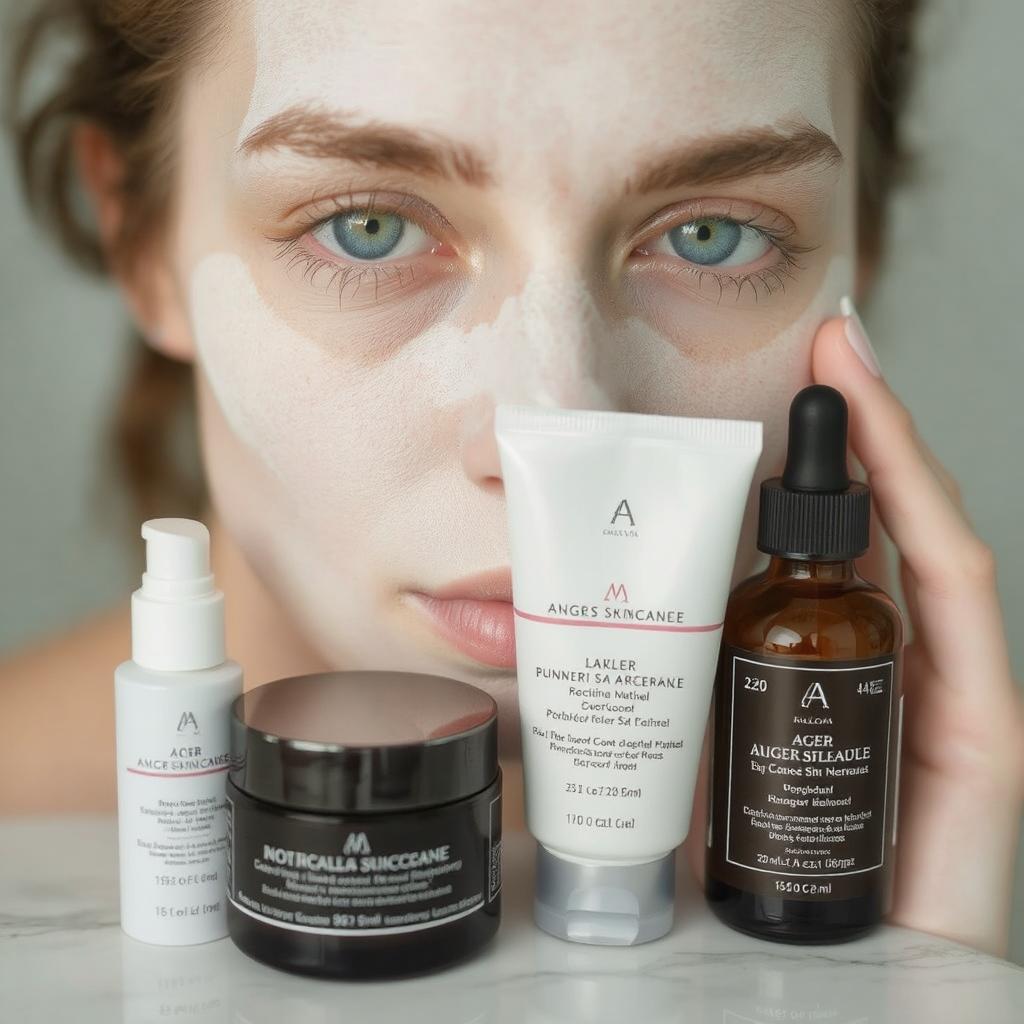
The Stress on Skin Age Reversing Growth Factors Skincare Growth Factors Guide
Skincare ingredients that genuinely deliver results, such as growth factor agents, are gaining momentum as the days go by. This discovery has led to the popularity of this particular class of components because it addresses several aspects of the skin aging process and health. But then, what are these growth factors? And what are their skin benefits? In this guide, we will explain what growth factors are, what they do and why they may radically change the way you do skincare.
What Are Growth Factors in Skincare?

What Are Growth Factors in Skincare? For starters, growth factors are proteins naturally occurring in the human organism. They are fundamental in the functions of cell growth, repair and in maintaining the skin in good condition. Simply put, growth factors are a class of proteins that act like a cell phone tower, sending out signals to the respective cells to undertake certain activities including healing a wound by filling it with new tissue, making more cells, and making more collagen and elastin. The skin for instance, contains huge amounts of these proteins which are important in keeping the skin tight, elastic, and youthful.
Cell growth factors used in cosmetic preparations are usually human and sometimes animal in origin. Such products are included in the composition of serums, creams, and other preparations for the activation of cellular regeneration and anti-aging therapy.
The Definitive Manual on Skincare Growth Factors
What They Are and The Effect on Your Skin

In the list of cosmetic products that really work, growth factors take one of the leading places. This new and yet unexplored market is popularizing because of its capabilities to fight numerous aging decals and enhancing skin overall wellness. But what exactly are growth factors and what are their importance how they help the skin? In this guide, we’ ll tell what growth factors are and how they function and why their introduction into your self – caring process could become revolutionary.
What Are Growth Factors in Skincare?
These are proteins existing in the human body. They contribute towards cell division, proliferation and renewal of the healthy skin. In more pictorial form, growth factors are like telephone calls – they encourage the cells to do something, such as fix broken bones, build new tissue, and make collagen and elastin among others. In other words, these proteins are most abundant around skin cells of which their main function is to support the elasticity, tightness and youthful appearance of the skin.
In skincare products, the growth factors originate from human, plant stem cells, or even synthesized. They are incorporated in creams, serums, and other formulations so as to facilitate tissue regeneration, prevent aging changes and overall enliven the skin.
How Do Growth Factors Work?

Growth factors contained in the cosmetic products signal the skin cells to renew and regenerate. When used externally, these proteins transcend the epidermis and contact the cell wall where this occurs. This interaction advocates cell proliferation, elevates collagen synthesis and improves regenerative activity of the skin.
The implications of the use of growth factors in cosmetics include
Different Types of Growth Factors Found in Skincare Products
Growth factors are found in multiple forms, each serving a different function in the processes related to skin care. Here is a summary of the most frequent ones:
Epidermal Growth Factor (EGF): This growth factor encourages cell regeneration and helps in the healing process of wounds. EGF assists the skin in producing collagen and elastin in greater amounts, making it a suitable growth factor when the aim is to enhance skin quality and lessen the presence of wrinkles.
Fibroblast Growth Factor (FGF): Fibroblasts are the collagen and elastin-generating cells present in the skin. FGF promotes the increase in activity of such cells, hence skin becomes stronger and more elastic. Subjects who show a decrease in tissue laxity or exhibit mild wrinkles can benefit from the use of FGF.
Keratinocyte Growth Factor (KGF): Keratinocyte glue factor is important in the healing of the skin and during hydration. It focuses on enhancing the outermost protective barrier of the skin, which is an added advantage to women who have martyr or otherwise damaged skins.
Transforming Growth Factor (TGF): TGF is a growth factor that acts both in the production of elastin and collagen, as well as in anti-inflammatory action. This is why it is helpful to individuals with acne or inflamed skin because it facilitates healing without aggravating the condition.
Vascular Endothelial Growth Factor (VEGF) – This aspect favors vascular development, which aids in the provision of essential nutrients and oxygen to the cells within the skin. This is how the mechanism works as a way of improving one’s complexion or skin vitality over the other age-defying aspects and therefore, the use of VEGF is recommended for the younger glowing skin.
Assessing the Pros of Integrating Growth Factors in a Skin Care Regimen
The incorporation of growth factors into the skin care regimen has a number of beneficial effects especially on aging skin. Below are some of the key benefits:
Decreased Visibility of Fine Lines and Wrinkles: With the ability to promote collagen and elastin production, growth factors are effective in diminishing the fine lines and tightening the surface of the skin for a more youthful and even appearance.
Improvement of Skin Texture and Skin Color: Growth factors play a big role in cell renewal, thereby aiding in skin texture and tone evenly with use of the factors. This is especially important for those who suffer from atrophic, hypertrophic scars, and affected skin areas or skin discoloration.
Enhanced Wound Healing: In patients with impaired skin integrity or with skin damaged due to other factors, growth factors act as additional agents that promote wound healing.
Improved Skin Turgor: Persistent application of growth factors can aid in restoring the lost elasticity and hence the healthy plump and firm structure of the skin.
Prevention Of Damage Induced By Harmful Contaminants: Growth factors enhance the skin barrier thereby protecting it from environmental factors such as pollution, UV light and toxic substances.
Are Growth Factors Safe for All Skin Types?

Transparency Serum growth factor is an ingredient that is most appropriate for any skin type and even sensitive skin as well, as it is a component found in every body. But, as I always ill-advised, its better to speak to one’s dermatologist, especially if you have such skin issues or allergies. On the other hand, some people may need to make sure there are necessary precautions given their health conditions such as people suffering from rosacea – they may use sensitive skin growth factors only.
How to Use Growth Factors in Your Daily Skincare Program Most of the growth factor products are found in serums, which ordinarily are used after purification and toning, and prior to moisturizing. Below are some suggestions on how to include daily growth factors in your skincare regime: Choose the Appropriate Product: Search for a serum or cream that has growth factors as part of its ingredients
. Many growth factor high quality serums have hyaluronic acid, peptides and antioxidants among other supportive herbs. Apply Regularly: Accordingly, it is recommended to take growth factor products every day, ideally in the morning and night, for phenomenal results.
For Examples, if a person wants to compare the effects of different products on skin texture and firmness, they should also be consistent in using the products.
Add Other Anti-Aging Agents: Growth factors are compatible to such constituents as retinoids, peptides and vitamin c but these agents should be used concurrently but slowly. Keep in mind that it is best to combine these ingredients gradually to avoid causing irritation.
Avoid Mixing with Exfoliants:
As growth factors are meant for the purpose of healing and rebuilding, do not include them as part of the treatment when using potent exfoliating agents that will compromise the skin barrier. If you have to use exfoliating acids, try to use them every other day or in different sections of the care routine. Next Blog
